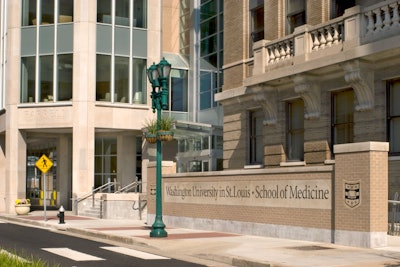Washington University School of Medicine in St. Louis has pledged to provide $100 million in scholarship funding to cover the tuition for as many as half of its future medical students and partial tuition support for several others. The program will begin with the incoming 2019-20 class.
In addition, the funding will support current efforts to modernize the school’s medical education program.
 Washington University School of Medicine in St. Louis
Washington University School of Medicine in St. Louis“For most medical students, debt is a significant factor in selecting a school and a career path,” said Dr. Eva Aagaard, senior associate dean for education and the Carol B. and Jerome T. Loeb Professor of Medical Education. “We want to help alleviate that financial burden and instead focus on training the best and brightest students to become talented and compassionate physicians and future leaders in academic medicine. There, they will teach and inspire future medical trainees to reimagine health through scientific discovery and innovation, and work to help improve the health of people everywhere.”
Funds for the scholarship program and improved curriculum efforts mainly comes from the School of Medicine, through new funding from its departments and Barnes-Jewish Hospital and St. Louis Children’s Hospital, the university’s affiliated training hospitals, according to a university release.
The School of Medicine has a history of working to send its graduates into career fields with as little debt as possible. The average debt for School of Medicine graduates over the past five years was $99,088, compared to the national median of $166,239.
“Some scholarships will be based on financial need and some on merit or even a combination of the two,” Aagaard explained. “Ultimately, the scholarships will help us build a class that reflects our school’s values and allows us to educate the very best future physicians so that they will go on to have an indelible impact on health and society. We intentionally have not earmarked a certain amount to financial need or educational merit because our goal is to recruit high-caliber students who are passionate about — or who show great potential for — improving health care in the community and across the world.”


















